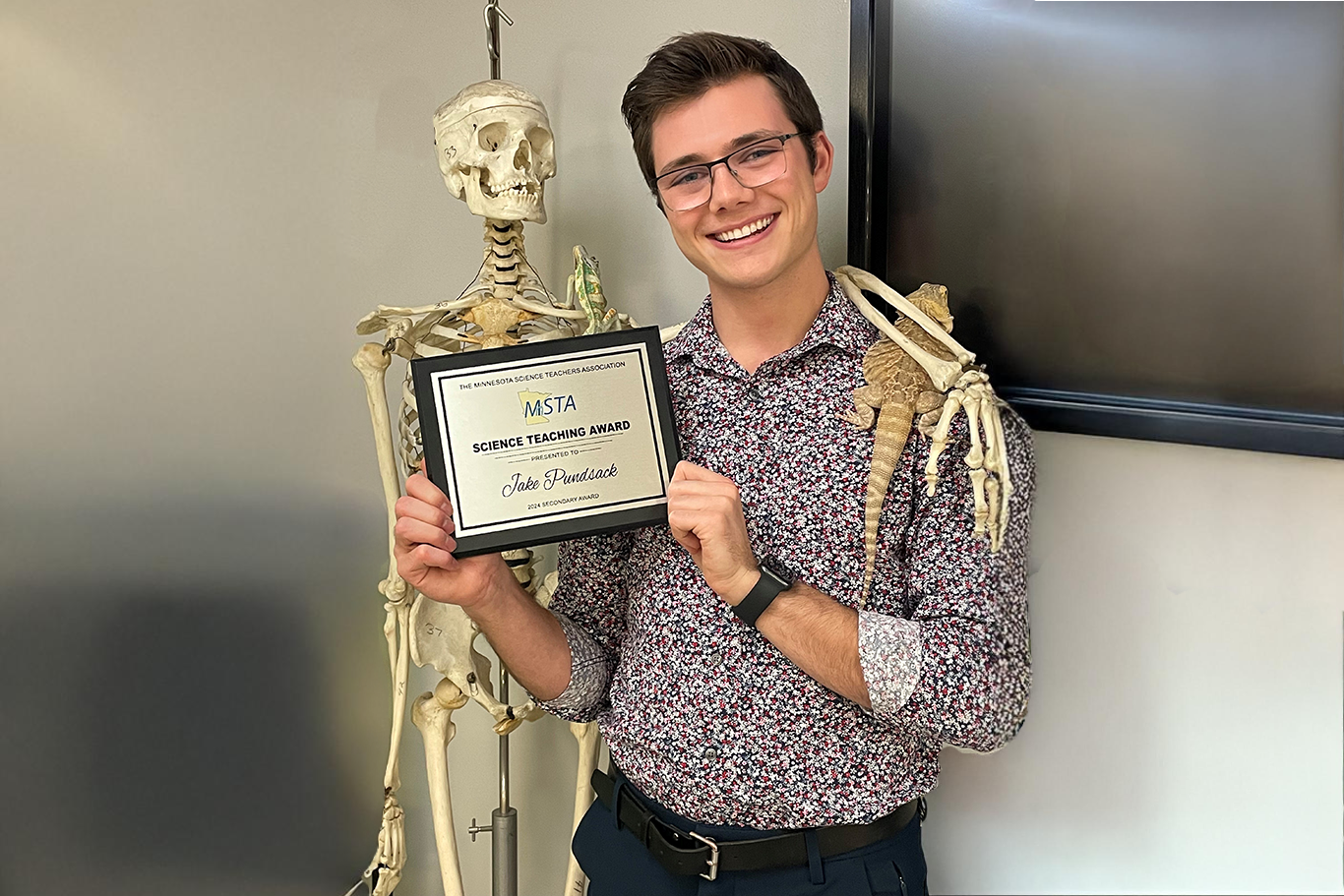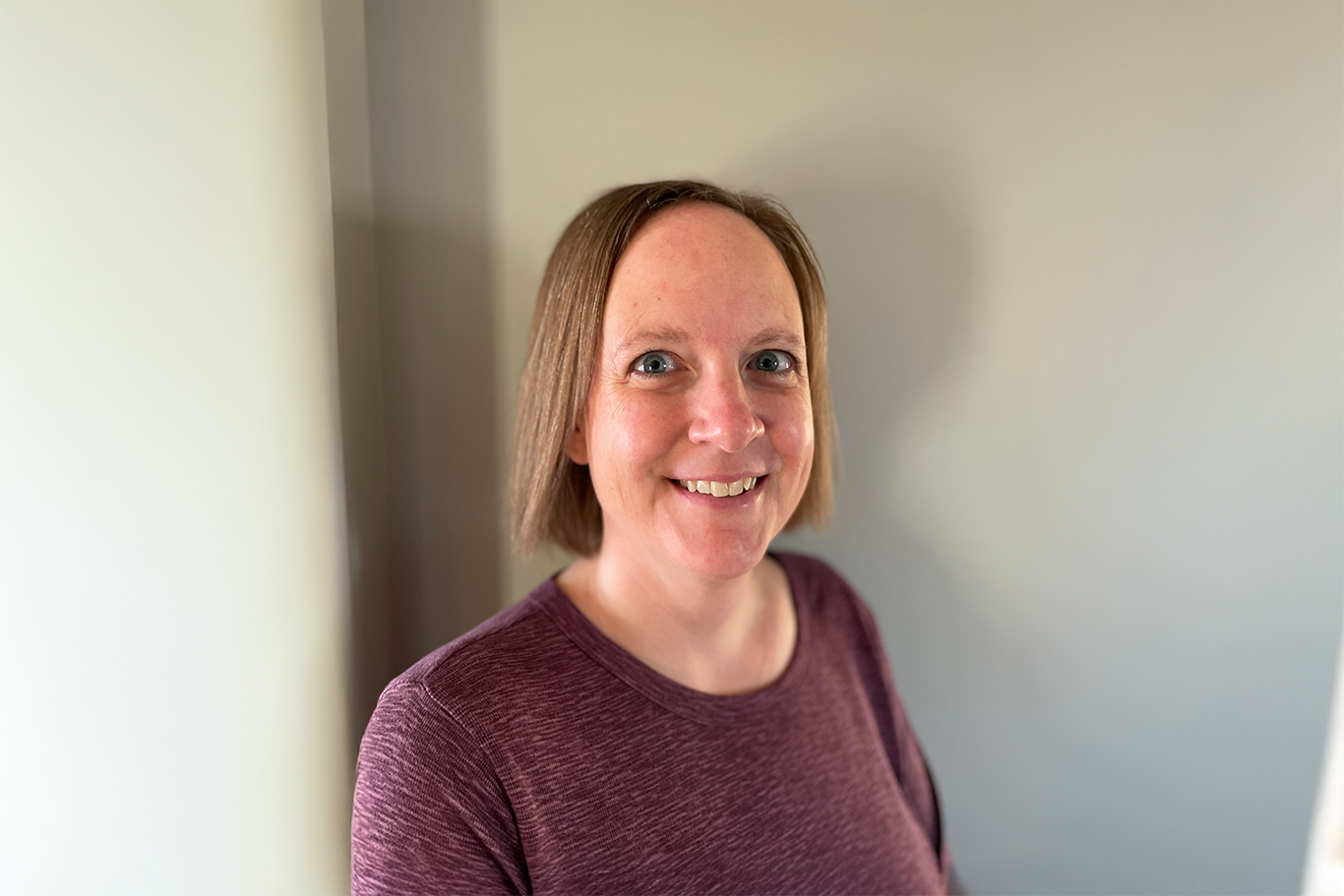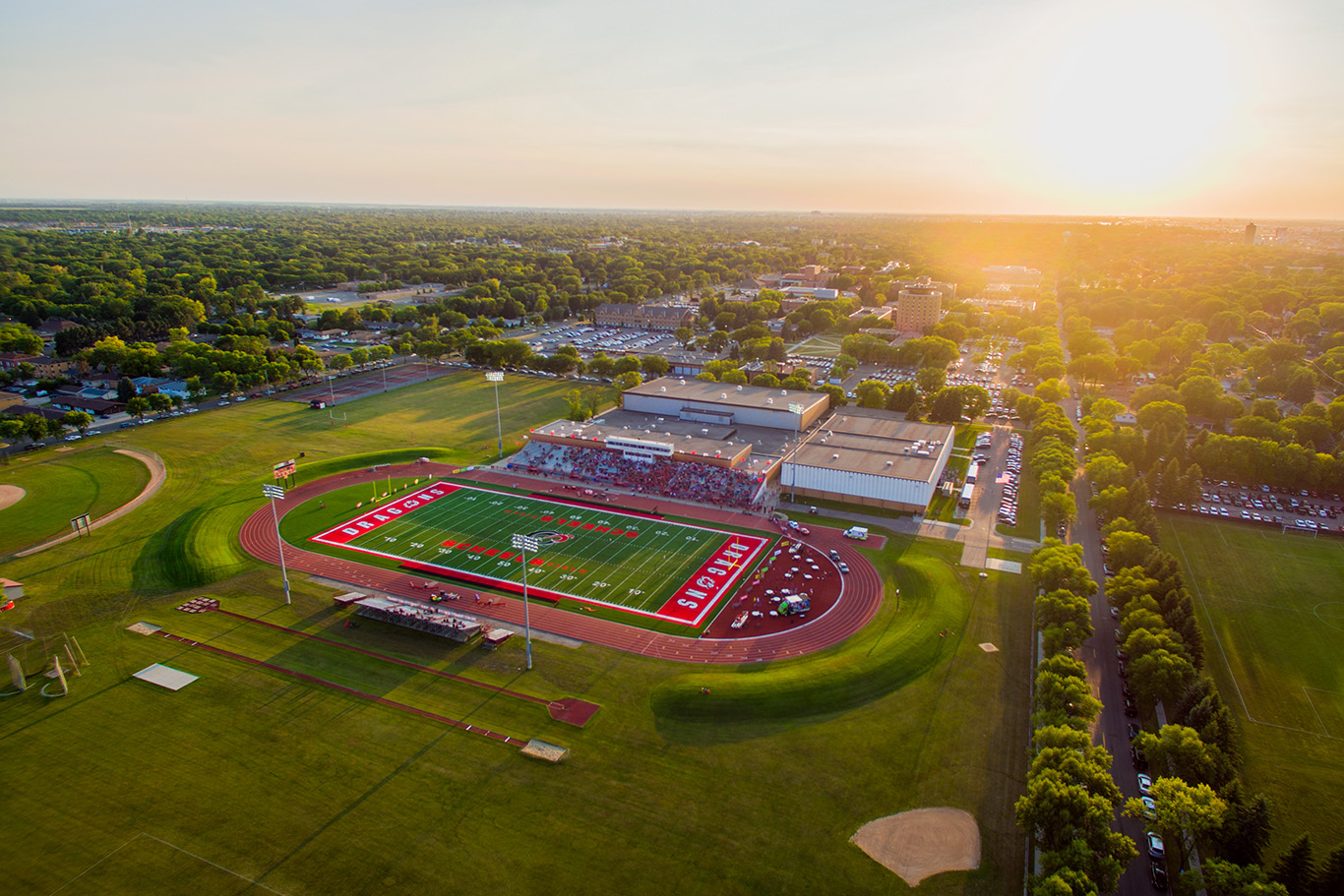Uniting Progress and Tradition
The needs and challenges of the White Earth Indian reservation loom large in Mahnomen County, Minn., where a population of 5,532 resides. The reservation also covers parts of Becker and Clearwater counties. Mahnomen County ranks 87 out of 87 Minnesota counties for overall health outcomes by County Health Rankings. (countyhealthrankings.org)
Its rural location and lack of economic forces make it difficult to attract, and keep, health professionals. The Mahnomen Health Center has one part-time physician that visits weekly. Indian Health Services has difficulty staffing its dental clinic, and finding a dentist who accepts medical assistance is challenging. There are also few psychologists available to help meet the community’s vast mental health needs.
But MSUM alumnae are helping to make this a better community.
Valiant Efforts
Alumnae from all walks of life are improving the lives of native and non-native Americans living in Mahnomen County. Negative attitudes about seeking help for physical, emotional or behavioral issues are waning, and the support and resources to meet those needs are improving.
“People usually come to see me in their darkest of times,” said Sarah (Bjerk) Jasken ’04 (social work), a mental health therapist at White Earth Tribal Mental Health. “My job is to reduce that stigma of mental health, so people will feel comfortable in accessing services and making changes to improve their lives and well-being.”
Cera Swiftwater ’15 (criminal justice) is a child protection worker with the Indian Child Welfare Department.
“Seeing the situations and trauma these kids come from is not easy,” Swiftwater said. “Many parents have a long way to go to be healed and reunited with their families. I have a 5-year-old (in her case load) taking care of four younger siblings. It’s tough.”
Despite the impact of trauma, disease, alcoholism or drugs, these children find comfort and hope in the work being done here.
“There is a perception that social workers take kids away from their families,” Swiftwater said. “I hope they see me more like a mentor who is helping their parents or guardians make their lives better so that they have a safe and stable home.”
Thanks to the work of alumnae like Sherry Vanata ’07 (finance), more mental health practitioners are being hired to meet the needs in this community. As mental health business manager at White Earth Tribal Mental Health, she has seen the growth of mental health providers double to over 40 in the past three years.
“A lot of that growth is because of the grant money we have secured,” she said. “It gives us flexibility to hire case managers and therapists across the board.”
A lot of the kids Jasken works with struggle with stressors in their life that are ongoing, such as depression, anxiety, poverty, substance abuse and more. They need help in moving forward in a healthy way, she said.
“Trauma is something we’re always navigating and teaching and learning about,” said Sara Erie ’11 (counseling and student affairs), also a mental health therapist at White Earth Tribal Mental Health. “We also provide support and information about their own culture so that it’s not lost.”
Community Advocates
All of these women are advocates for their community. Some represent the White Earth nation; others embrace it. Their desire to make a difference is steadfast.
“I worked with nonprofits before I had a college degree and saw the need for financial management skills,” said Vanata, an enrolled member of the White Earth tribe.
She enrolled at MSUM at age 28 with four children at home, giving birth to her fifth child while she was in college. She drove two-and-a-half hours every day for five years to earn her degree.
“I figured out how to run numbers and now I manage grants for native nonprofits,” she said. “I’m right where I’m meant to be.”
Enrolled White Earth member Kris Manning ’09 (early childhood education) moved from school to community teaching when she accepted the position of fetal alcohol syndrome disorder (FASD) coordinator at White Earth Tribal Mental Health.
“I’m still teaching children with FASD basic social and friendship skills, I’m just doing it one-on-one instead of in a classroom,” Manning said. “Raising awareness about FASD is important to our reservation. We must educate teachers, the tribal courts, probation officers and others to help them understand the needs of a child with FASD, so we can be supportive and help that individual succeed.”
In an effort to meet the community where it’s at, the recent regionalization of the mental health teams to schools within the community is a bonus for mental health professionals like Erie and Jasken. It also removes a hurdle for those seeking assistance.
“Individuals can walk into an office at the school and connect with somebody right away versus waiting a couple weeks to see somebody at the clinic,” Erie said. “We are now closer to the people in their own communities.”
Medical Impact
These advocates get a lifetime of experience in short order as they meet high-level needs in an area short of professional health care providers.
The Critical Access Hospital at the Mahnomen Health Center is one of the highest acuity critical access hospitals in the Midwest, delivering life-saving efforts before transferring patients to higher-level healthcare facilities.
“Mahnomen County is considered a health professional shortage area,” said Nancy Stock ’86 (nursing), a nurse practitioner at Mahnomen Health Center/Sanford Clinic Mahnomen and a professor in MSUM’s School of Nursing and Healthcare Leadership. “We manage a lot of the problems that would be handled by higher-level internal medical physicians in a larger community.”
Stock’s daughter, Andrea (Stock) Lizaola ’10 (nursing), recently joined the Mahnomen Health Center as a staff RN after working 10 years at hospitals in Fargo and Bemidji.
“I’m getting a lot more experience and a wider variety of patients every single day than I would get at most other clinics or hospitals around here,” Lizaola said. “Technically, you have to be ready for just about anything at any time.”
There is solace in the extra effort health professionals like Stock put toward their patients. She shared the story of a 48-year-old man who had a heart attack and went into cardiac arrest. Her team did CPR for 40 minutes and resuscitated him neurologically intact. The standard time to do CPR in that instance is 20 minutes so he likely would have died elsewhere. He has since made significant lifestyle changes to improve his health.
“It’s so rewarding to see the lives we’ve saved over the years and to know these people have a second lease on life. Having a positive impact on our community is what keeps me going,” Stock said.
Although physicians are few in Mahnomen County, Stock has maintained a solid presence on the medical staff for more than 20 years, providing healthcare services at the Sanford Clinic, and Mahnomen Health Center hospital and emergency room.
“It can be frustrating and hard to break the provider turnover cycle because it’s a challenging job and a challenging population,” Stock said. “It takes a lot of confidence to work in this environment. If you gain a couple years of experience at a place like Mahnomen, you are well prepared to work anywhere in the country.”
Moving Forward
The White Earth nation is progressive. They stand ready to meet the needs of their members. Swiftwater, who is an enrolled member of the Pine Ridge reservation in South Dakota, is amazed at what she sees happening on White Earth.
“There is a severe shortage of programs to help people in need at Pine Ridge tribe. I’m very happy to see so many valuable programs offered here,” she said. “Working at White Earth has offered me a lot of extra training. Eventually I hope to go back to my reservation with this experience and make positive changes there.”
Some examples of recent programming include:
▸ Oshki Manidoo Center, offering residential treatment for youth and women
▸ Maternal Outreach and Mitigation Services (MOMs), offering holistic medical and emotional support for pregnant women addicted to drugs
▸ The Native Alive campaign, empowering, supporting and educating community members about suicide and depression
▸ Becker County-White Earth reservation 24/7 crisis hotline
▸ Regionalized mental health teams housed in schools within communities
“Where I’m from, 90 percent of the population lives below poverty. It’s a very different culture and structure in the White Earth community. They’re not afraid of change. They use a lot of modern technology, and at the same time, they embrace their culture,” Swiftwater said. “All of the signs are in Ojibwe. The tribal building always smells like sage. People are often seen praying. They do many things culturally that are truly amazing.”
Erie agrees the community is in a much stronger place than it was five years ago. She says the crisis support hotline, staffed by Becker County and White Earth reservation, has been recognized statewide for its efforts.
“I think there is always room to do more, but we have definitely become more progressive, proactive and preventative in our efforts,” Erie said.
In light of the increased national awareness of the need to address mental health issues, White Earth is at the forefront of delivering these and other needed services to all in their community. They have come a long way, but recognize they still have a way to go.
“The people of White Earth are doing a lot of things right. It’s great to be a part of this amazing community,” Swiftwater said.
This story was first published in Moorhead Magazine, Fall 2016.
Make Sure Your Story Is Heard
Let us know how your life has been changed by being a Dragon: tell us your MSU Moorhead story today!
Send Us Your Story


